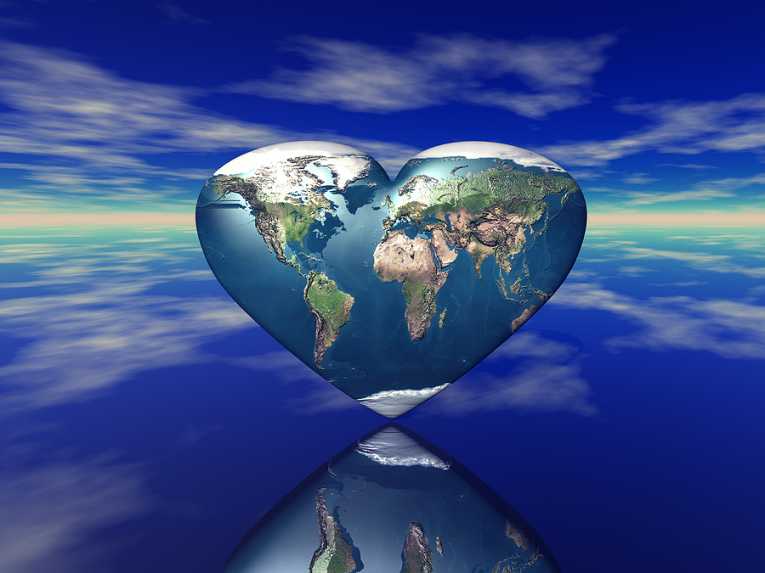The ice-caps may be melting, the seas may be rising. But the tide of public opinion, these days, appears to be receding in an altogether different direction. Despite the noise and froth of the quest to save the planet, if you turn the volume-knob marked 'passion' down just a notch, and listen very carefully, you'll hear it - the quiet shuffling of the audience out of the door sign-posted 'exit'. Whether it's President Obama treating the words 'climate change' like political toxin, or the greasy slip of environmental worries down the pole of everyday concerns, the atmospherics around the green message have turned decidedly chilly of late.
How very different to just a few short years ago, pre-credit crunch and pre-Climategate. Then, it seemed the urgency of the threat of global warming had penetrated even the notoriously thick-skulls, and narrow time-horizons of the political elite. There were tentative signs of that most elusive of beasts - political consensus - on the need for action. Though of course, it had to be whispered about quietly, just in case it took fright. After all, climate change wasn't only threatening the poorest nations, the entire natural world and the (awkwardly non-voting) future generations. It might be about to affect the bottom-line of the corporate world, too.
But that moral high ground for the saving of the planet, earned through the hefty groundwork of a generation of green activism, has given way. There are obvious culprits. The global economic collapse, bought on by the popping of the credit-bubble, ripped very large holes in the balance sheet of companies and common-man alike. Time to save the planet later, they said - we need to make sure we don't lose hearth and home first.

Image Credit: © LoopAll
Losing the moral high ground
And the carefully-won credibility, of the science behind global warming, was blown apart by the suspiciously well-timed hacking of private emails between climate scientists, in Climategate. Shockingly, it turned out that scientists are human after all - prone to bouts of self-defense and over-protectiveness, in the face of the climate-denialist antagonism. It didn't matter that the science itself withstood the scrutiny. There was enough mud to fling, and it was flung with such abandon, that much of it stuck, however unfairly.
Can't save, don't care
But the fact that the green consensus has fallen away so readily, only serves to highlight how fragile and tenuous was the grip that environmental concerns had on the public imagination. And the green movement only has itself to blame. The slogans have been all wrong, the mindset depressingly short-sighted. The 'environment' and the 'planet' were wheeled out, with some glee, by environmentalists, as if they are separate entities. And they have been shamelessly abused to push those buttons labeled 'care' and 'fear'. All well-and-good, for as long as people felt able to care for the environment, or to be scared of the planet falling off a cliff.
The problem comes when those emotional attachments to such distant concepts - the fluffy bear of the environment, or that remote and hazy idea of a shared planet - are challenged. Then they'll be ditched, and all too quickly; homo sapiens, with a few noble exceptions, focuses on the matter to hand. Self-interest and self-preservation, in their most immediate sense, are what counts when the chips are down. Some will have the imagination to see the bigger picture; but in the heat of the fray, most don't.
The vision thing
So if we, as a species, are too fickle to care more than fleetingly about the environment, and too unimaginative to worry about threats lurking over the horizon, is all hope lost? Not necessarily. Not if those seeing the bigger picture can learn to work with the grain of human strengths, and especially with human foibles. As a species, we still have that vision thing, when we think it will deliver for us. And it can be a powerful motivator - the land of milk and honey, the earthly paradise, the American dream - these are positive futures to which human societies have eagerly bent themselves too.
And the green movement can readily conjure up such a vision. A world where humankind is living in balance with nature, not lording over it. Where material needs are met to create comfort, not feed the fitful lusts of the rate-race. Where we all have the time to stretch and ease into the cultural, and social, nooks-and-crannies that bring us ape-cousins such pleasure. Those are things that are, surprisingly, well within our grasp - given the will. It's down to the green movement to summon that will, to spark the search for the promised land. The people will come; and the environment-protecting and planet-saving will follow.
The views and opinions expressed in this article are those of the author.
Top Image Credit: suravid










